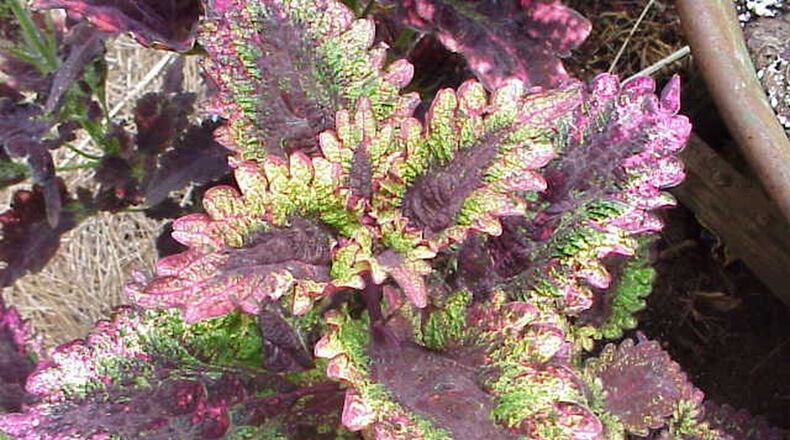Q: I planted coleus in my garage flower bed last year and they all died. I read somewhere that direct sun would be an enemy to coleus. But my neighbors grow them in sunshine despite this.Jerome Council, email
A: Once upon a time coleus was well known as a shade-loving plant. Bright sunshine was the enemy. But about 20 years ago, breeders introduced coleus varieties that could tolerate more and more sunshine. These days they are common at local nurseries. Read the plant tag to be sure you get a color-filled variety that is right for your garage bed.
Q: I planted dwarf mondo grass but it doesn't want to spread. Any suggestions?Trey Park, Atlanta
A: As long as it is in moderate shade and not in a soggy spot, mondo grass should spread readily. Perhaps yours needs nutrients. I suggest you fertilize once a year in April with Milorganite, Holly-Tone, or Dr. Earth.
Q: I have a topiary boxwood that has succumbed to boxwood blight. I know one can't replant a boxwood in the same site but are there other shrubs that I could put in the same place?Karen Martin, Atlanta
A: Boxwood blight probably has become a real problem in Atlanta landscapes. As you note, once the blight is present we can't put boxwoods there again. Fortunately, there are alternatives. 'Emerald Colonnade' holly, bred by UGA horticulturist John Ruter, is an excellent replacement due to its tiny leaves, rapid growth and modest water requirements. It was used to replace the boxwood formal garden at the Swan House at the Atlanta History Center in 2018. Other hollies like dwarf yaupon holly (Ilex vomitoria), inkberry (Ilex glabra), and dwarf Japanese holly (Ilex crenata) are also good. You could also consider non-traditional substitutes, like dwarf loropetalum or 'Frost Proof' gardenia. I have even more alternatives at /bit.ly/GAboxalt.
Q: Do you know where to locally purchase Virginia peanuts to plant in my garden?John Miller, Tucker
A: Jimmy Adams at Adams-Briscoe Seed (abseed.com) in Jackson says he can supply a couple of different varieties in homeowner quantities. He is quick to caution that these are not edible peanuts; they are treated to resist disease before planting. Homegrown peanuts do not keep easily from year to year, so most folks use treated goobers to grow in their garden. If you really want untreated peanuts, Southern Exposure Seed Exchange (southernexposure.com) has several untreated varieties.
Q: At what nighttime temperatures do TifTuf bermuda roots grow?Larry Maddox, Burke County
A: Bermuda grass roots grow slowly at a soil temperature of 65 degrees and shut down at a soil temperature of 60. The optimum soil temperature for growth is 75 to 80 degrees.
About the Author
The Latest
Featured

